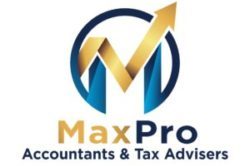At Max Pro Accountants and Tax Advisers we always like to keep you, and our clients, fully up to date with the latest tax regulations and updates. So here goes…
For businesses and employees using company cars, staying on top of the latest HMRC advisory fuel rates (AFRs) is crucial for ensuring correct expense claims and tax compliance. Effective from 1 September 2025, HMRC has announced several important updates, including a significant change for electric vehicles (EVs).
These rates are a guideline used when you either reimburse employees for business mileage in their company cars or when employees repay the cost of private fuel. Using these rates can simplify your accounting, and if applied correctly, it means there’s no taxable profit or Class 1A National Insurance to pay on the mileage payments.
A New Era for Electric Car Reimbursement
In a welcome move, HMRC has finally addressed the wide discrepancy in EV charging costs. Previously, there was just a single, flat advisory electric rate (AER). From this month, the rate is split into two to reflect the different costs of home and public charging.
Home Charging: The new rate for charging at home is 8p per mile (up from 7p).
Public Charging: For on-the-road public charging, the rate is now 14p per mile (up from 7p), a change that better reflects the higher costs often associated with these chargers.
This change is a major win for employees who rely on public charging infrastructure, ensuring they are more fairly compensated for their business travel costs.
Updates to Other Fuel Types
While the electric rates have seen the most significant change, there have also been some adjustments to diesel vehicle rates. Petrol and LPG rates remain unchanged this quarter.
Advisory Fuel and Electric Rates from 1 September 2025
Diesel:
Engine Size Diesel Rate (per mile) Previous Rate
Up to 1600cc 12p 11p
1601cc to 2000cc 13p 13p
Over 2000cc 18p 17p
Note: For hybrid cars, you should continue to apply the appropriate petrol or diesel rate.
Remember, these are advisory rates. If you can prove your company cars are more or less fuel-efficient, you can use your own rates, but any amount paid over the advisory rates without supporting evidence will be considered a taxable profit. HMRC reviews these rates quarterly, so it’s essential to stay updated.
Navigating these changes can be complex, especially with the new dual rates for EVs. For expert advice on how these updates impact your business’s tax and payroll, don’t hesitate to reach out.
Contact Us HERE for more advice and information
